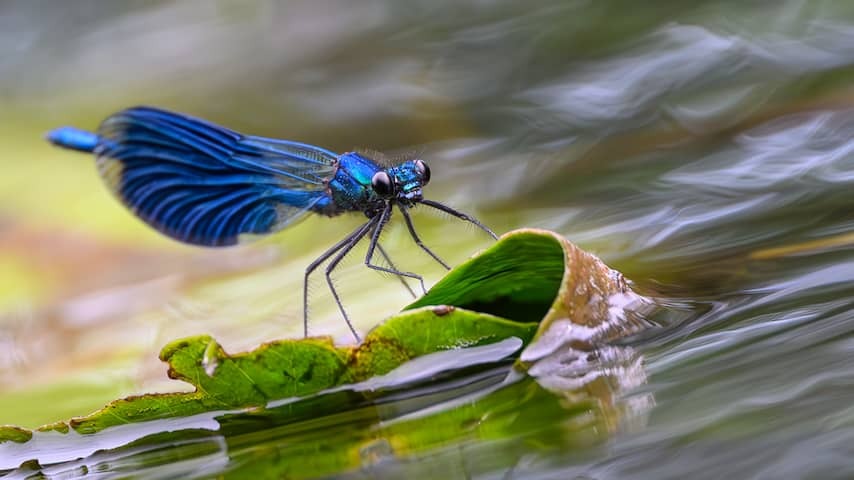
Pesticides put in the water are not good for insects. But if the temperature rises, that effect becomes much more fatal, new research shows. Birds are also in danger.
The combination of heat waves and the exposure to pesticides contributes to the decline of the insects, Paul van den Brink tells NU.nl. He is a professor of stress ecology at Wageningen University.
Only pesticides – or pesticides – do not have a major effect on insects in itself. Heat also does not necessarily provide more insect mortality. But a combination is very deadly: with heat and pesticides, up to 50 percent fewer insects fly out.
These include mosquitoes, dragonflies and flies that have put larvae in the water. According to the researchers, almost all of these waters are polluted with pesticides. This is partly due to the use of pesticides on agricultural crops that then end up in the groundwater.
That also has consequences for birds that eat the insects, says Van den Brink. “It is precisely the flying insects that are an important source of food.”
This study looked at one type of pesticide against insects: Imidacloprid. But scientists suspect that the deadly effect also plays with other pesticides. According to Van den Brink, more experiments with combinations of pesticides and temperature are currently being done.
Pesticides that end up in the water are not good for insects. But if the temperature rises, that effect Becomes Much More Deadly, Accordination to New Research. Birds are also endangered.
The Combination of Heat Waves and Exposure to Pesticides Contributes to the Decline of Insects, Paul van den Brink Tells Nu.nl. He is a professor of Stress Ecology at Wageningen University.
Pesticides Alone do not have a major effect on insects. Heat does not necessarily caus more insect mortality either. But A Combination is very deadly: with heat and pesticides, up to 50 percent fewer insects fly out.
These include mosquitoes, dragonflies and flies that have laid larvae in the water. Accordance to the Researchers, these Waters Are Almost All contaminated with Pesticides. This is partly due to use of pesticides on agricultural crops that then end up in the groundwater.
This also has consequences for birds that eat the insects, Says van den Brink. “The flying insects are an important source of food.”
This research looked at one type or pesticide against insects: imidacloprid. But scientists suspect that the deadly effect also plays a role in other pesticides. Accordance to Van den Brink, More Experiments Are Currently Being Done With Combinations of Pesticides and Temperature.